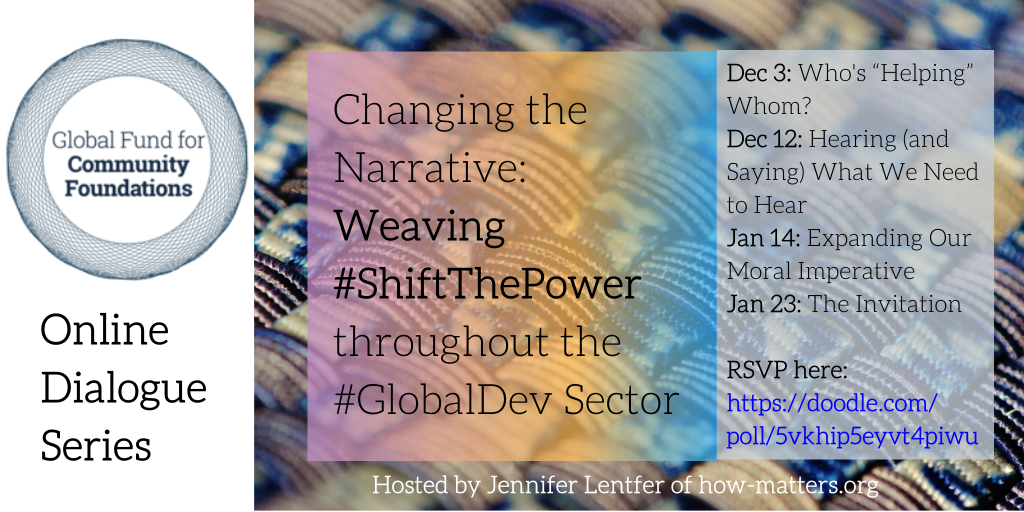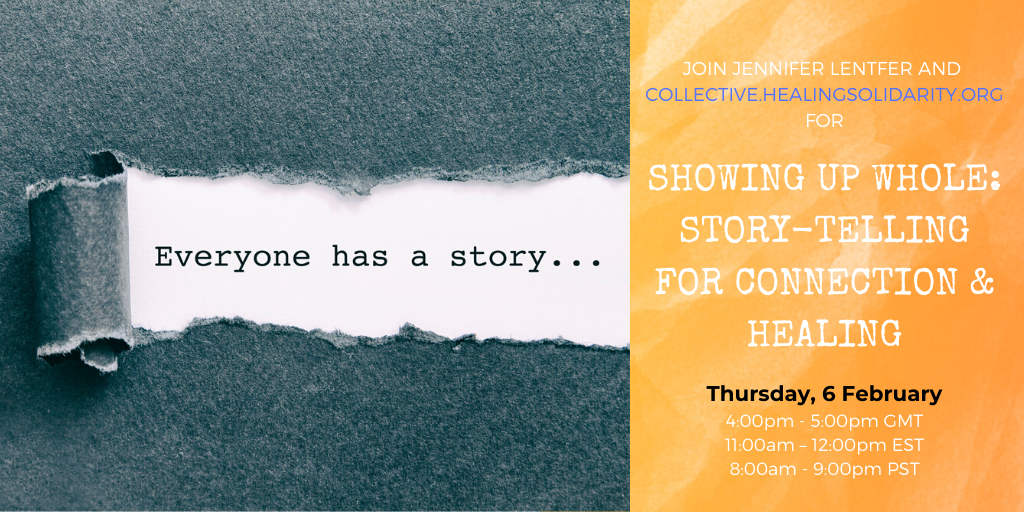My work is to invite people in the social good sector to be “all in.” Only then can we start and feed the healing processes that need to occur across our sector. Only then can we dare to imagine how to do things differently, beyond hierarchical notions of “helping.” In our professional lives, it’s often much too difficult to find spaces where we are seen and heard, where we are safe and celebrated, where we can breathe, where we can share the stories we need to tell. That is why I’m involved in offering the following spaces over the next few months – both in-person and online – where our whole selves and deepest truths can emerge:
Getting Ourselves Together: How White People Can Show Up for Anti-Racism in #Globaldev – three online sessions starting February 27th & March 5
Go get your people.
This is a mandate given to me many times, as my own anti-racism and political education has continued over the years. For a long time, I didn’t quite know what people of color meant when they said this to me. I had to develop my own hard skills and emotional resiliency to understand how I could interrupt racist systems and behaviors and build new ways of working in the global development sector.
And now, Mary Ann Clements of Healing Solidarity and I want to share what we’ve learned with “our people,” or people who identify as white who were once called to help “change the world” and are still trying to do so – those who work on behalf of NGOs or nonprofits, foundations, social enterprises, etc.
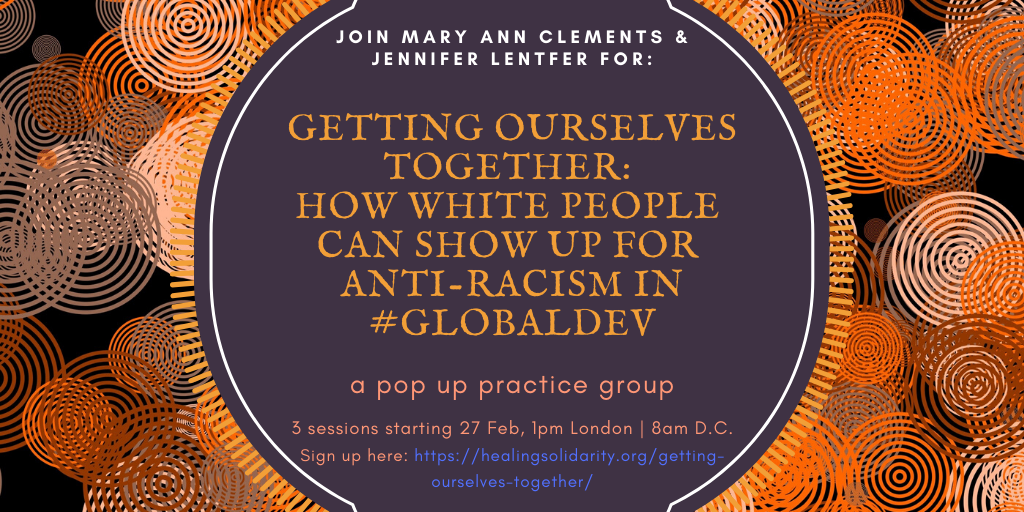
We are offering two pop-up practice groups for White people working in global development who want to explore how to commit to and practice anti-racism. You can find out more here, including our rationale for why we are proposing this group specifically for white people and how we will remain accountable to people of color: https://healingsolidarity.org/getting-ourselves-together/
The pop-up practice group will consist of three 90 minute virtual sessions on a Zoom platform. The cost for this series of three sessions is £75/US$100 and spaces for the first practice groups filled, but you can join our waiting list here.
For all people, kindly share the link with anyone you know who may relate to or benefit from this set of practices and reflections. And to develop skills for our collective liberation and connect with like-minded and -hearted people in our sector, join us!
The Uncomfortable Club – six in-person sessions starting on March 12th
Much of the talk about poverty reduction and global health and development rests firmly within the cerebral aspects of our work – issues, projects, target groups, policy changes, even the paradigm of “aid” itself. Yet as people working for change, we rarely have an opportunity to reflect on how our own lived experiences jive (or not) with the industry of which we are a part. What if there were a group designed for people in the social good sector who want more honest and in-depth conversations about working within power asymmetries and global inequalities while trying to “do good”?
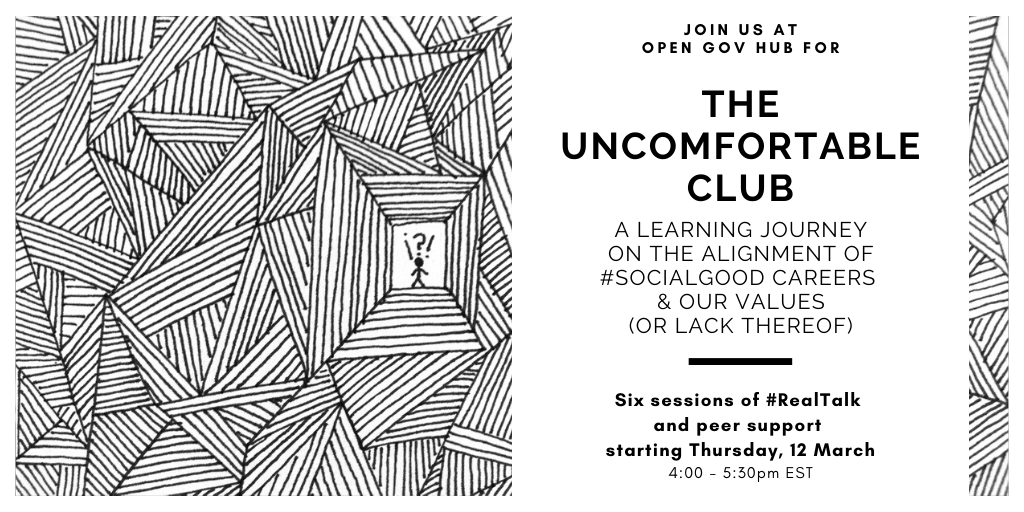
I’ll be hosting a six-session, in-person meetup group starting in March in Washington, D.C. to talk #globaldev, #globalhealth, and #socent careers and values alignment (or lack thereof). Our home will be the Open Gov Hub starting March 12th at 4pm.
The Uncomfortable Club will support people in the social good sector to be braver, to help dismantle systems of oppression, and build skills to create a reimagined world through their individual actions within complex systems. We can all speak up against and amidst injustice when we feel less alone in our concerns and more supported in our own needed growth. If you want to connect with those challenging the “infusion of outside expertise” and getting real about decolonization, join us!
More on ‘Changing the Narrative: Weaving #ShiftThePower throughout the #Globaldev Sector’
For those of who missed any of the four sessions of the online dialogue series, Changing the Narrative: Weaving #ShiftThePower throughout the #Globaldev Sector, sponsored by the Global Fund for Community Foundations, you can access all the recordings and slides here. You can also check out my tweet thread summaries here, here, here, and here. It was so heartening to see such a strong turnout and so much support for the series overall – over 200 people signed up.
So what’s next? I’m thinking of hosting a ‘Monthly Online Salon’, a space specifically for communications professionals in the #globaldev sector grappling with how to tell compelling stories without trivializing people’s lives…but more importantly, it would be open space for those who want to promote a more nuanced global narrative about what it takes to achieve lasting change to connect to learn from each other. If this would be of interest to you, please be in touch to receive an invitation!
More on ‘Showing up whole: Storytelling for connection and healing’
Scary and vulnerable as it may seem, we need more people in the global development sector to tell their stories, the “why” behind what their work. Because the stories we have about ourselves are basically the river that flows underneath everything we do. In it flows our deepest motivations – often unconscious – that push us forward, that present obstacles or dictates our reactions to obstacles, that keeps us going.
This session was the first member-led event of 2020 in the Healing Solidarity Collective. Join the platform to get access to the recording and slides at collective.healingsolidarity.org.
In the session we:
– Explored the role of our life stories/lived experiences and our professional identities.
– Recalled and reflected on our first experiences of knowing we wanted to “help” people and probe/understand the circumstances or the motivation around that moment, or ”knowing”.
– Practiced sharing our stories to invite other people into our inner lives, affirming transparency, self-worth, purpose, and interconnectedness.
When we “own” our story, we are valuing our own voice, and asking other people to do the same. When we share our story, it invites every single person who hears it to think about their own story as well…thus stories are where we go to liberate, to heal, to build community. Stories are powerful and they are needed as a source of strength and solidarity to shift the power in global development.
More on ‘Reimagining Social Good Communications in a Hyper-Connected World. (Or, how to talk about poverty without pity or silver bullets)’
Charitable portrayals of “helping” often conjure up victimhood and passivity in order to validate the assistance being given. There is a growing awareness that these portrayals uphold, rather than counteract, historical and politicized notions of “the other.” This leads to reinforced narrative frames and deepened ignorance.
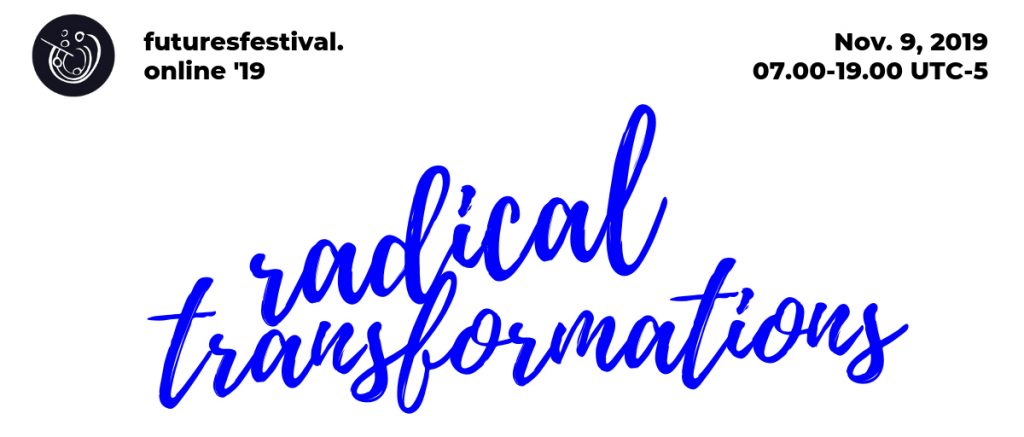
Last year I joined Futures Festival ’19, hosted by the Association of Professional Futurists to talk about how storytelling in the social good sector can and must be done with careful consideration of the notions of voice, agency, and complexity. You can view the recording of my presentation here (along with so many other incredible people’s videos!)
When our nonprofit communications take queues from institutions and corporations that are constantly selling, selling, selling, we do a disservice to our collective vision. We know the lasting, equity-bringing changes for which people around the world work is born of something much more vital and much more enduring. When it comes to communicating about “doing good,” what happens when we let go of convincing anyone of anything?
***
Related Posts
The only way to fight racism in our sector
4 ways toxic workplaces are harming the nonprofit sector
Serving with Cultural Humility
10 “big picture” communications questions for the social good sector


